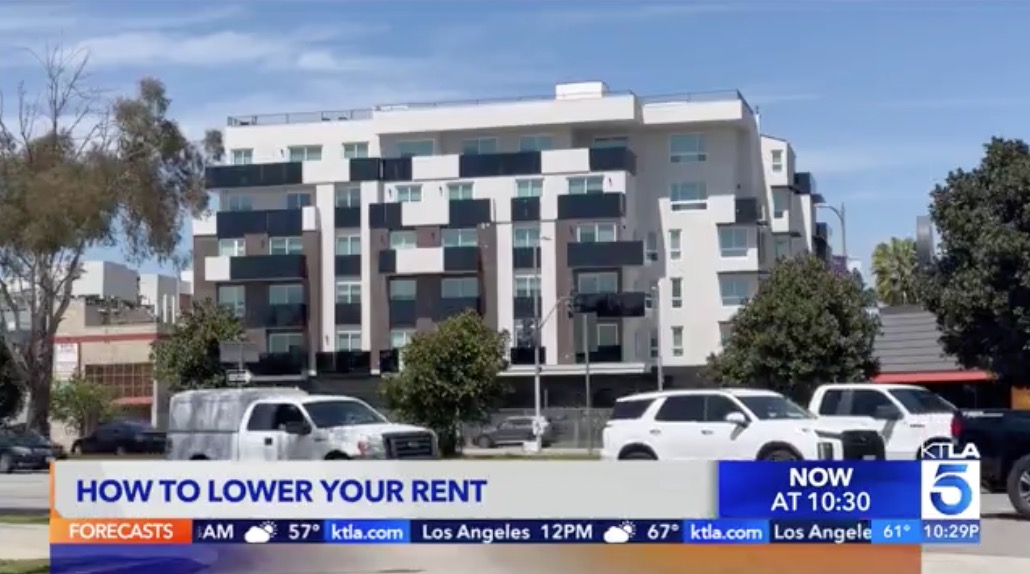If you’re looking for a new rental apartment, you might be thinking about renting a studio. However, you might be unsure how a studio differs from a one-bedroom apartment and what the pros and cons of both are. That’s why we’ve made this handy guide to help you decide whether a one-bedroom or a studio apartment is the right renting choice for you. By understanding exactly what the difference is between the two different types of apartments, you can make an educated choice as you look at where you might move. So, let’s break down the pros and cons of a one bedroom vs. a studio apartment.
What is a One-Bedroom Apartment?
It’s all in the name: a one-bedroom apartment has one bedroom which is distinct from the rest of the apartment. This means that the bedroom is enclosed by walls and a doorway. One-bedrooms typically have more square footage than studios do. They might also have an extra closet or two.
What is a Studio Apartment?
A studio apartment, on the other hand, combines your living, sleeping, and eating spaces. All of these areas are in one large room. The only room which is separate in a studio apartment is the bathroom, because US housing law mandates that the bathroom be enclosed. Otherwise, there are no dividing walls between areas; the layout is entirely open. Due to this, studio apartments generally have less square footage than one-bedroom apartments do.
One Bedroom vs. Studio: What Factors Should I Weigh?
Now that you understand the difference between the layout of a one-bedroom and a studio apartment, you might be wondering what other factors to take into consideration. Mostly, this will involve thinking through how the type of apartment you live in will intersect with your daily life. Here are a few key questions to ask yourself as you consider the pros and cons of a one-bedroom apartment vs. a studio apartment:
Are You Living With Someone Else?
This is an essential thing to consider as you think about different types of apartment. Even if it’s just yourself and a roommate, a studio apartment can feel crowded, and there won’t be very much privacy. This can cause more problems than you might imagine.
You might think that if your roommate is someone like a long-term partner, the lack of privacy will be less of an issue. However, it’s important to consider the additional privacy necessary to live your everyday life. Nowadays, so much happens at home. You might have conflicting work calls or telehealth appointments. Calls like these can be much easier to take alone, in a different room. Of course, you could always erect dividers yourself, but you’ll want to take into account the extra time and money that requires.
Considering these things ahead of time will prevent them from being a problem. If you’re living alone, navigating around issues such as these will not have to factor into your decision, and a studio apartment may be the right option.

What’s Your Budget?
Studio apartments are generally cheaper than one-bedrooms, so this is another thing to take into consideration. The extra space in a one-bedroom might be worth the higher rent, depending on your lifestyle. On the other hand, with the lower rent of a studio apartment, you might be able to live in a neighborhood that you might not be able to afford if you were only looking at bigger apartments. Utilities will also be less in a studio apartment, because the smaller space takes less energy to heat and cool. This also makes a studio apartment more environmentally friendly than a one-bedroom.
Weighing these pros and cons is essential when it comes to thinking about how your budget plays into this decision. You want your priorities to match up with the way you choose to budget, whether that’s the amount of space, the neighborhood you live in, or whether you have a roommate.
Are You Working From Home?
How you’ll be working in your living space is an important thing to consider. If you’ll be working at home, a one-bedroom apartment might allow you to separate your work space and your living/sleeping space a little more than a studio apartment will. This can be important for your mental health and a good work-life balance. However, there are ways around this in a studio apartment. As we said before, you can always erect dividers, or find other ways to keep your spaces distinct.
How Often Do You Entertain Other People?
If you like to have lots of people over during more normal circumstances, the layout of your apartment will matter once you start entertaining more regularly. Renting a studio apartment often means that your private things are right out in the open, because you sleep in the same area as your living room. It’s worth considering whether you’d be comfortable with this. You might also want to consider how you’d mitigate the lack of privacy if it did become a problem. In a one-bedroom apartment, this wouldn’t be as much of a problem––you’d be able to store your private things in your bedroom.
If you’re not as much of an entertainer, a studio apartment will require less furniture and less cleaning than a one-bedroom apartment, so that’s a perk to keep in mind. This will make moving out much easier, too. Additionally, a studio apartment’s small space may also encourage you to leave more often and explore the local scene.
We hope that this handy guide on a one-bedroom apartment vs. a studio apartment helps you as you’re making decisions about where to rent. Balancing all of your conflicting needs can be tough. The good thing is, the more you learn and plan ahead, the more informed you’ll be as a renter. Best of luck on your search!
Check out our other blog posts on Dwellsy’s blog.
Looking for a new home? Dwellsy is here to help you find a rental.








